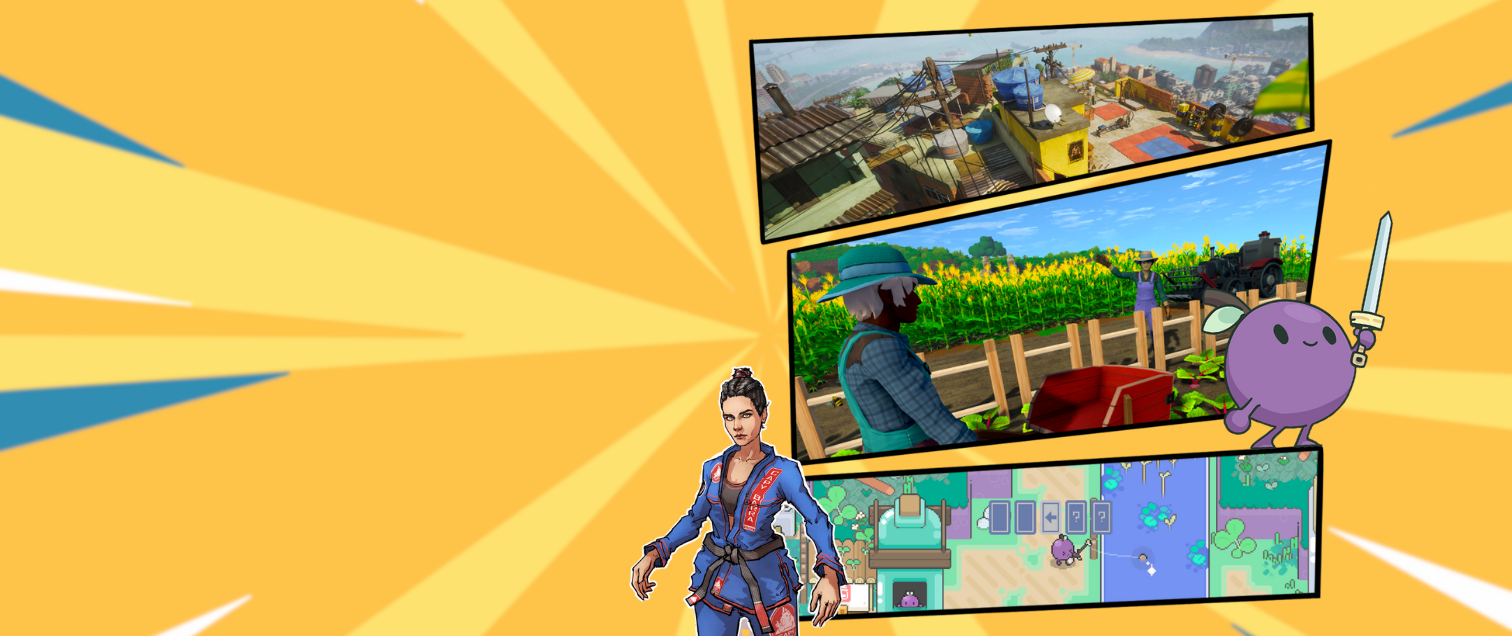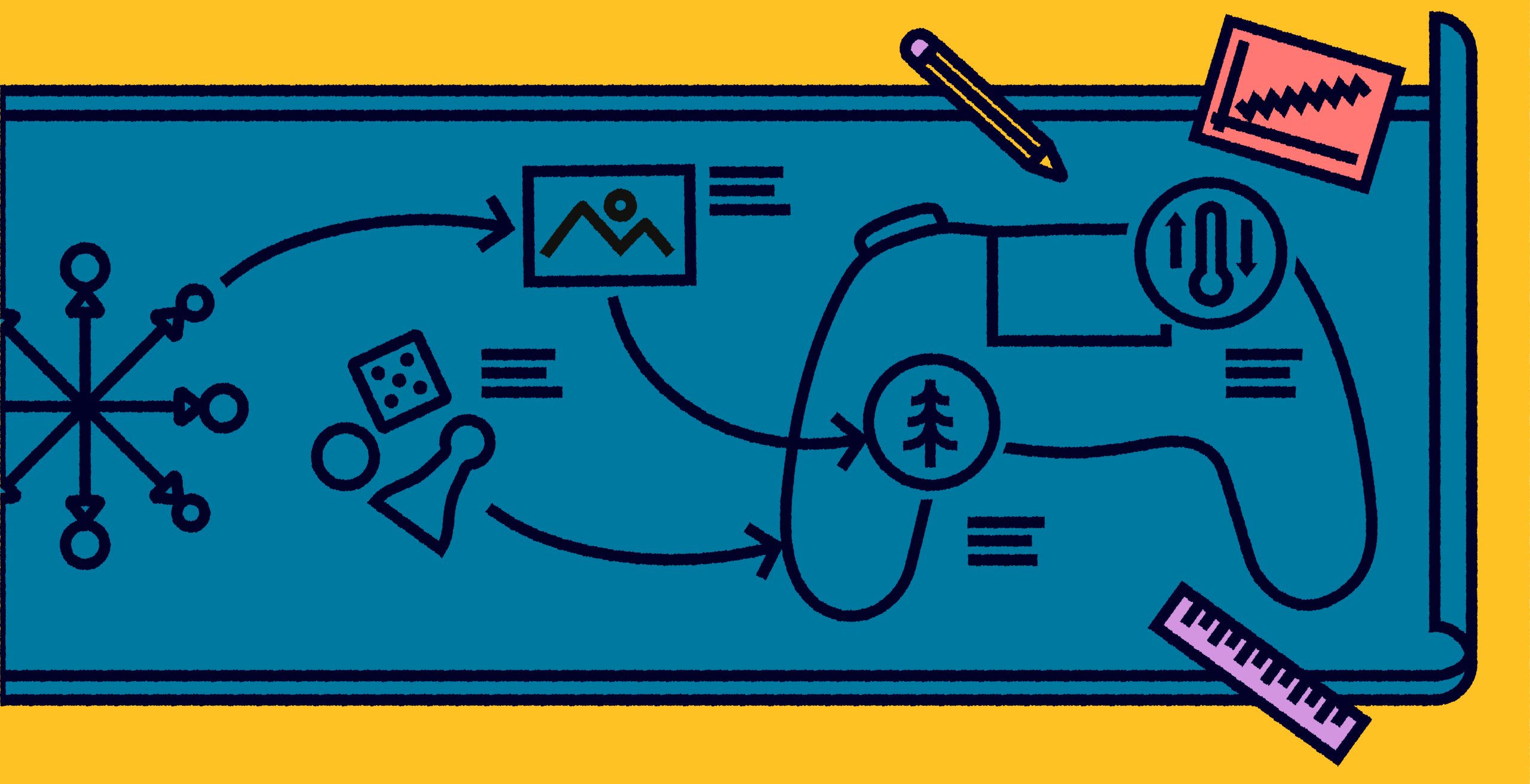Making a climate game can feel isolating,” explains Shayne Hayes, an industry expert and leading voice on climate games. Since he began developing minigames for Minecraft, he quickly realized that they can do more than entertain. Games have the power to create real-world change.
A survey of gamers based in the United States found that 70 percent of gamers are worried about global warming. This is significantly higher than the 64 percent of people worried about it in the general population. Even more exciting? Gamers are motivated to act. One in every eight gamers reported taking action because of the climate content in games or streams.
With this untapped potential in mind, Hayes connected with climate games expert and Unity’s former head of sustainability, Marina Psaros. They worked together to drive the change they wanted to see.
The result? An innovative accelerator program focused on providing support to an overlooked and underfunded part of the gaming world: climate games. Six game studios were selected through a competitive process to receive direct mentorship, funding support, and access to the center’s proprietary workshop. The accelerator offered a road map for the unchartered territory of climate gaming. The studios had expert guidance on everything from developing a theory of change to effectively fundraising for their climate game.
However, taking on a problem as wicked as climate change creates unique challenges. Reflecting on his own experience, Hayes was equally excited at the chance to design a game with impact and pressured by the sinking feeling that he was the only one working on a game like this. The accelerator had to do more than simply educate studios—it needed to also empower and inspire them to rise to the challenge.
Why do we need climate games?
“One thing that surprises a lot of folks in the climate space is that there are more people who play games than drink coffee. Over three billion people around the world play games, and half of them are women,” Shayne Hayes says. “Games can reach people of all genders, ages, and backgrounds.”
The climate crisis is vast and multifaceted. As a result, the games that came in tackled different aspects of that same crisis—from water management to reducing emissions. Finally, six winning studios and their games were selected.
The winning games focused on specific aspects of the climate crisis and were at different stages of development. By bringing gamers into the world of climate resilience through their own unique perspectives, each studio was able to learn from each other.
While a game focused on foraging in the woods and a game focused on managing water for a fantasy world may not appear to have that much in common, the vision to build resilience let them learn directly from each other. “We wanted this to be an opportunity to build a sense of community and allow these studios with shared goals to lean on each other,” says Hayes.
The six studios selected for the Climate Games Launchpad
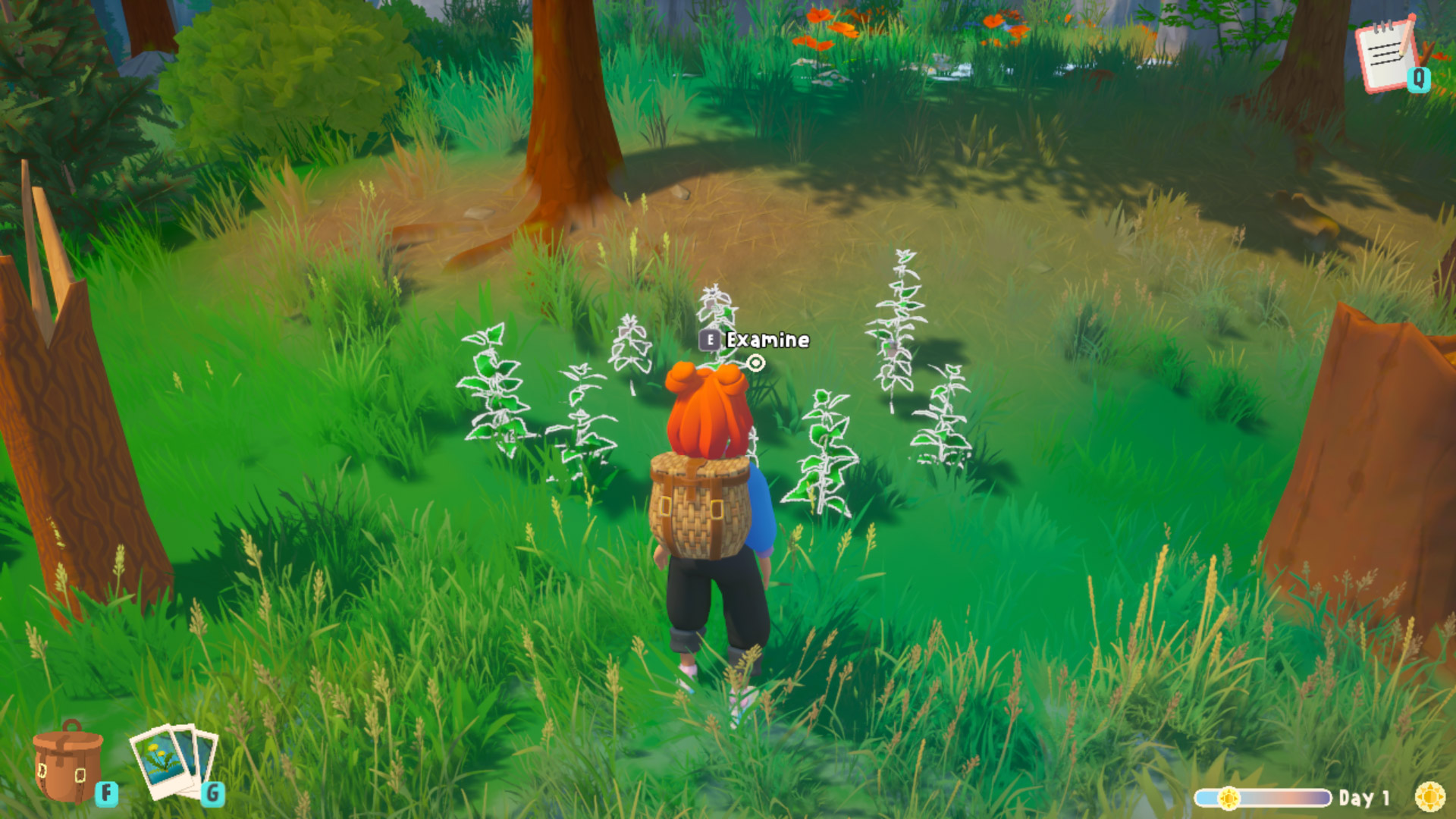
Yaldi Game’s Out and About
In Out and About, players head to an island after a terrible storm. Players explore the forest to find the resources to restore the community while protecting nature.
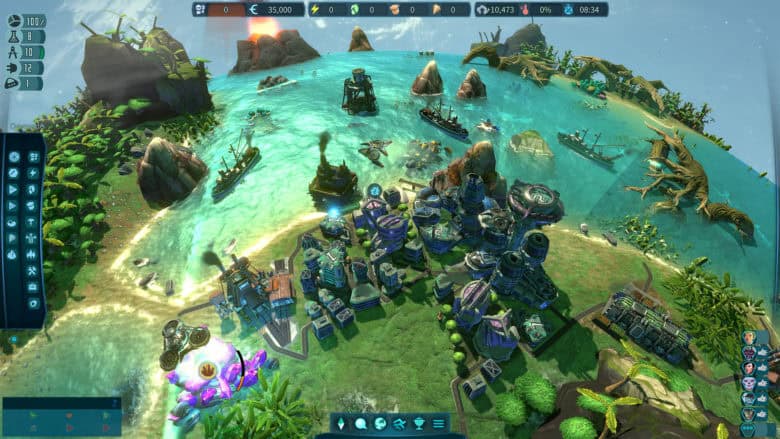
Serious Bros.’ Imagine Earth
Players are tasking with building and sustaining an entire civilization. But to avoid a global climate crisis, they must also find the balance between growth and sustainability.

Plato Cultural’s ARctic Lighthouse
This experience connects students around the world as they begin their mission for a better future! They explore reintegrate augmented reality portals to learn about sustainability.

Episod Studio’s Race for the Arctic
Gamers try to understand what happened to a shipping business. Through a series of puzzles and flashbacks, they learn what happened—and how they can restore the arctic.
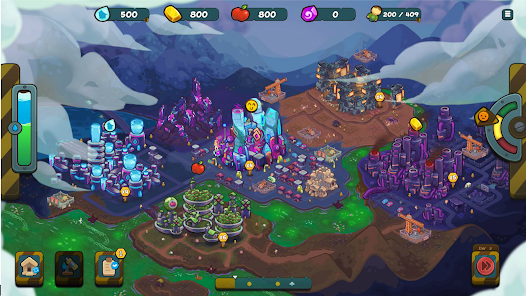
Totem Game’s Water 2050
In Water 2050, players can discover real-world technologies as they take on environmental threats to protect the water supply and the world!

Upcoming release from Anima Studios
Further, many participating studios had first-hand experience of the climate crisis, including Francine Kliemann, founder and director of Plato Cultural. “I’m from the south of Brazil,” she says. “In May this year, we had the worst climate catastrophe ever in Brazil. Entire cities went completely underwater. That’s why the Climate Games Launchpad was so meaningful. We were felt like we were part of a community of changemakers who want to create games for climate impact.”
When the judges selected the teams, that diversity in backgrounds and experiences was a priority to make the accelerator more impactful. “Bringing diverse perspectives and bringing them into spaces where they’re not represented —that’s something we need in climate policy as well as the gaming community,” says Psaros.
Gaming for climate good
There’s a growing space for climate games, but they should also do more than simply raise awareness. After all, a growing body of research has shown that gamers are more aware and receptive to climate information than the general public. Climate games have the untapped potential to motivate change at a larger scale.
“There are opportunities not just to raise awareness but to run deeper into real-world decision making,” echoes Psaros. “Heat Wave Survival is an example of how content can do that. It teaches kids how to understand heat planning and what their cities should be doing. It’s not a one-way form of communication. It’s a vehicle for conversations on how we want to adapt.”
That same approach is what the accelerator offered to the six selected studios. Their games and strategies had clear potential to drive resilience, and the program focused on refining their impact. Through the six-week course, the developers had the opportunity to meet with climate and industry experts. The sessions focused in on the specifics of what it means to make a successful climate game. From developing fundraising pitches to outlining a clear plan to monitor real-world impact, the course helped the studios realize the full potential of their games.
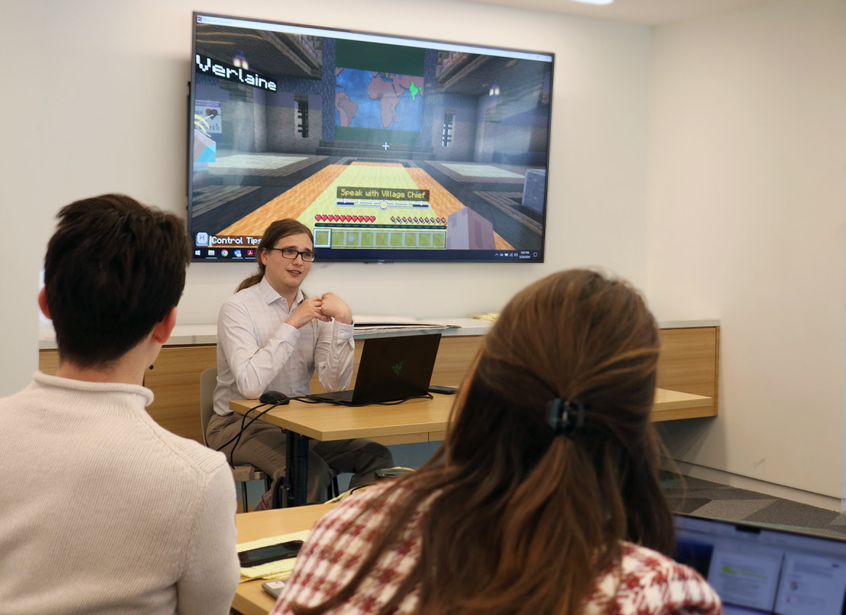
Protecting the (virtual) arctic: The story of Episod Studio
“Right before we were accepted to the accelerator, we were kind of lost,” says Sindi Breshani, co-founder of Episod Studio. “We thought, ‘Maybe we have to give up.’ But this was the hope we needed. It pulled us from that dark place and helped us see [the game] going somewhere again.”
Episod Studio’s Race for the Arctic is a documentary-style game that brings players face to face with the consequences of climate change in the cold north.
Notably, the arctic is warming four times more quickly than the rest of the world. Epsiod Studio’s game challenges players to rethink what it means to keep our planet safe.
It is “a love letter to unsung heroes,” directly inspired by real people and communities whose experiences living and working in the arctic embody resilience. Through the game, players meet a series of unique characters, each of whom is racing in their own way to ensure the survival of the arctic.
In just the first few weeks of the inaugural accelerator, Breshani saw immediate impacts on her game and her team’s motivation.
“From the very first day, [the Launchpad] made us feel less lonely and less crazy in a way,” explains Breshani. “It was inspiring to see how all the different teams were kind of trying to solve the same problem in such different ways. And it removes this big responsibility of getting everything right since others are working on it, too.”
This freedom gave their team the confidence to rethink their game. Learning from the experts and the focus on how to better inspire real-world actions, Race for the Arctic took on a new approach. Instead of a secondhand experience, they wanted the player to play a more active role. “In the game now, we’re driving them towards this kind of real-world impact. We added a level in the game that allows the player to connect this virtual world with the real world,” she explains.
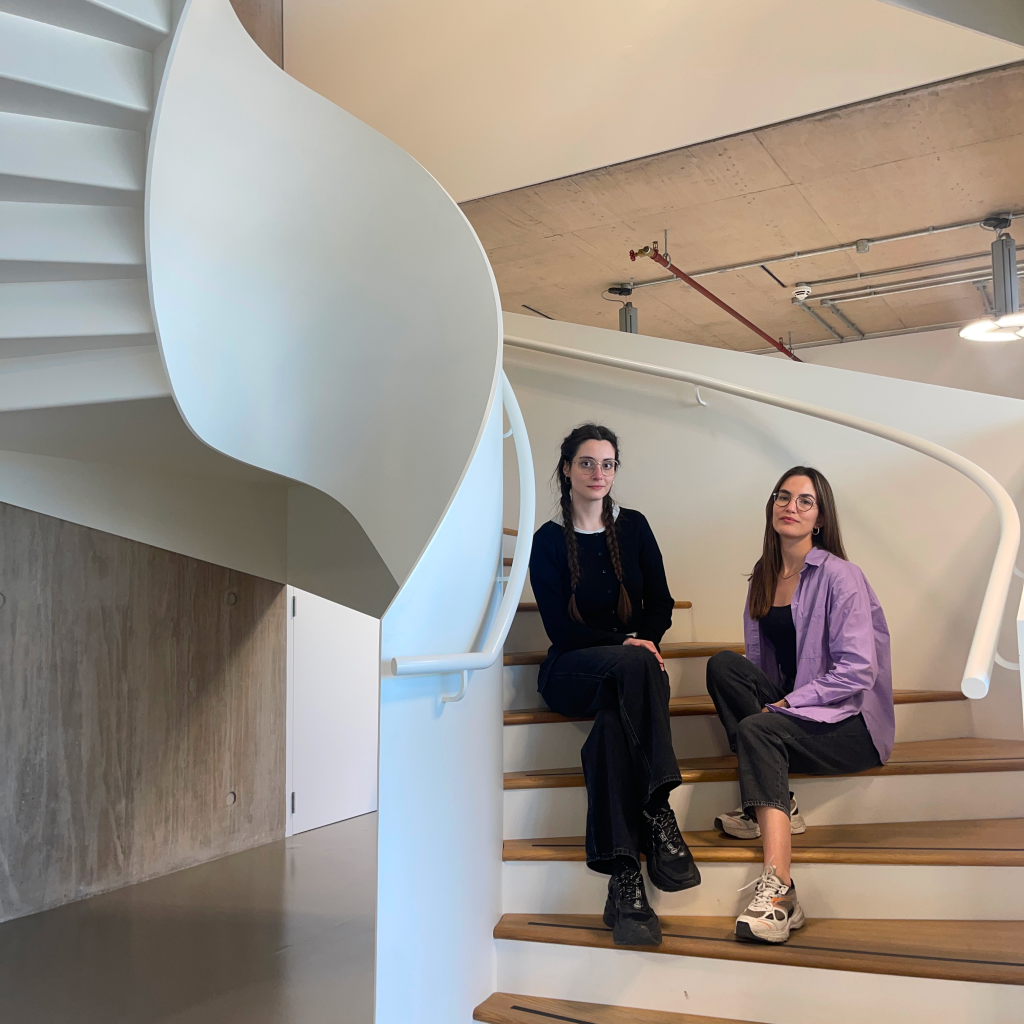
The educational reality of climate games: The story of Plato Cultural
The team at Plato Cultural also felt the benefits of the Climate Games Launchpad. Unlike the other winning studios who were working on traditional digital games, Plato Cultural created a climate experience using augmented reality (AR) where students experience the world around them in a new way. Challenge by challenge, students learn the knowledge and skills they need to take on the climate crisis.
“We are not like a game studio. We blend immersive technologies and gamification. It’s about bringing these experiences to the classroom where the kids are the protagonists while they learn,” explains Francine Kliemann, founder and director of Plato Cultural.
In their game ARtic Lighthouse, students engage with the world around them and open virtual portals that show them how to achieve sustainable futures. Students explore an arctic lighthouse in a future where climate change has wreaked havoc. They explore the augmented world where characters invite them on missions that they must complete in their real location.
When the studio entered the climate games accelerator, they began only with their proof of concept and previous successes in the field of AR. But transforming a virtual world into a game was new to them. The studio was drawn to the accelerator because they would have direct support from industry veterans and climate experts. With their support, Kliemann’s team could make more informed decisions while they took their experience from concept to prototype.
However, working with augmented or virtual reality comes with its own unique challenges. Unlike board games or other traditional games, often people lack the tools and equipment to access the game. Even in communities where people have more access to the AR glasses, classrooms often lack the funding to have one—let alone enough for each student.
“Our challenge was to keep it engaging and meaningful even for the students who are not directly playing the game. We needed them to still feel that they are participating,” explains Kliemann. “The Launchpad gave us insights into how the game can provoke real change. How can we go beyond the game and really teach about climate change? As we worked through these challenges, we had the support to think about the interplay between the real and the digital.”
After completing the accelerator, her studio was able to better market their game and earned the Unity for Humanity grant. “The grant was only made possible because we were in the Climate Games Launchpad. And the grant makes it possible for us to finalize our game. It is like a chain of support that helped us get us where we are,” she says.
Now, in the months after the accelerator wrapped, Plato Cultural continues to test and refine their game. Already, they have piloted it in Brazilian schools to gather data and recommendations from both students and teachers. These sessions are validating their theory of change and will inform the final game design. With the support of their partners the Necessary Space and El Dorado Institute, the experience will launch by the end of next year.
“Games can go beyond the causes and consequences of climate change,” says Kliemann. “Instead of just the science and data, they look at how we can help players change their perspectives, their relationships to nature, their attitudes, and their behaviors towards their environment.”
Playing for a resilient future
The accelerator sets a clear precedent. Climate games have a market, and there is also an appetite from studios to have better insight into the most effective ways of making them.
“There’s a lot of wheel we no longer need to reinvent,” says Hayes. “We know the information developers need. We know how to effectively and efficiently build a cohort and take them through that learning process.”
For future climate game accelerators, this inaugural effort has chartered a way forward and began to build an evidence base for impact. But it’s not just the climate space that has benefitted. Through the six-week process, the studios themselves realized the exciting opportunities they had to refine their game and secure funding and support to scale and publish them.
Reflecting on the accelerator, Psaros begins to smile. “It was so inspiring to see them all together. Each team took this huge, overwhelming issue and focused on one piece of that puzzle to build a world and a story to drive change.”
Kathleen Euler is the associate director of digital communications for the Climate Resilience Center.
